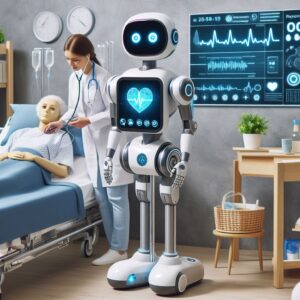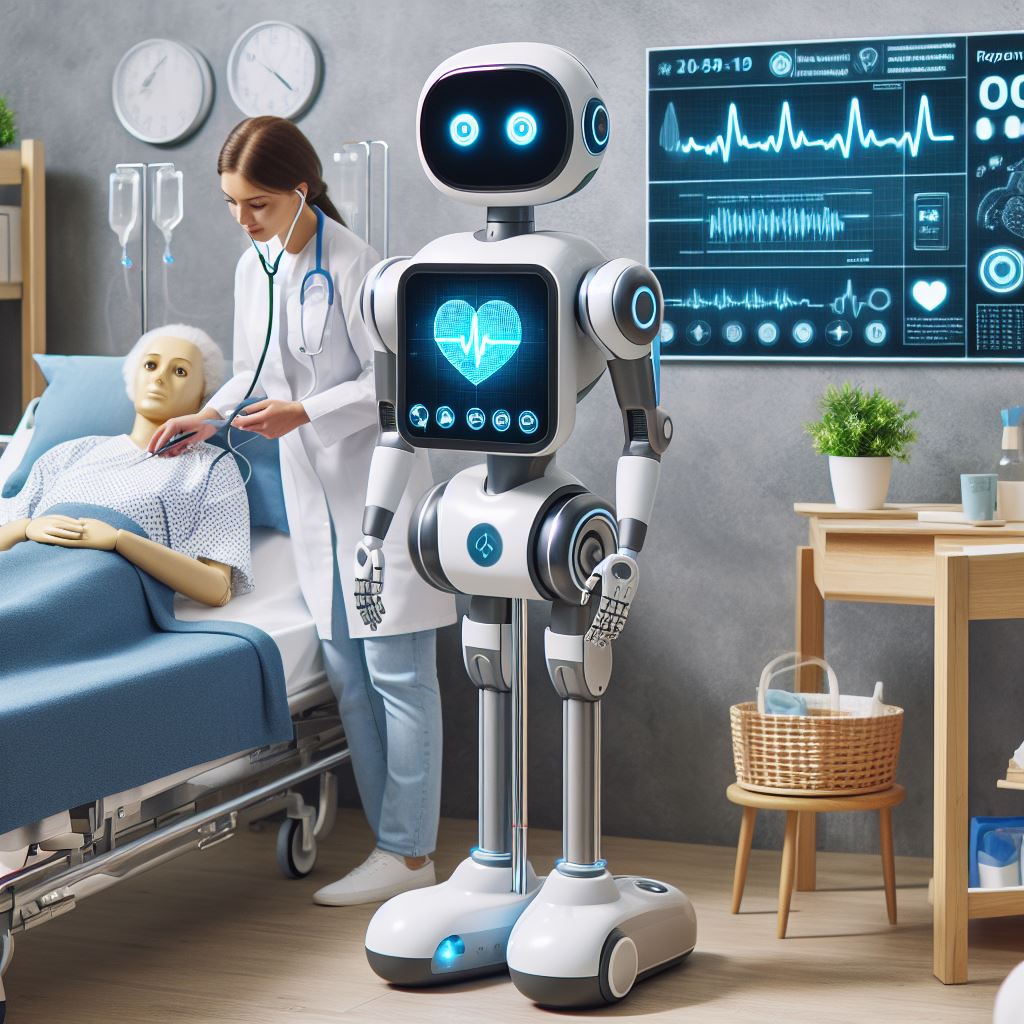Artificial Intelligence in Healthcare:
Improved medical evaluations, planning for treatment, patient care, & administrative operations are just a few ways in which machine intelligence (AI) is altering the face of healthcare. Healthcare outcomes, efficiency, and prices might all be positively impacted by AI’s capacity to analyze massive volumes of data, spot patterns, and provide predictions. Major uses of AI in medical treatment include the following:
1. Diagnostics and Medical Imaging: Utilizing AI-driven medical imaging technology, such computer vision systems and machine learning algorithms, aids radiologists and other medical professionals in swiftly and correctly analyzing medical images. Artificial intelligence systems may identify anomalies in mammograms, X-rays, computed tomography (CT) scans, and other imaging studies, which can help in the early identification of illnesses including cancer, heart problems, and neurological issues.
Second, AI allows for the creation of individualized treatment programs that take into account each patient’s unique genetic composition, history of illness, and lifestyle variables. This forms the basis of personalized medicine. In order to forecast the best course of therapy, determine the appropriate dose, detect medication interactions, and avoid side effects, machine learning algorithms examine patient data that includes genetic information, biomarkers, as well as therapy results.
3. Disease Prevention and Predictive Analytics: Models powered by artificial intelligence scour healthcare data sets such genetic information, medical imaging scans, and electronic medical records (EHRs) to find individuals who are most likely to have certain illnesses. Artificial intelligence (AI) may aid healthcare practitioners in improving patient outcomes and reducing healthcare costs by predicting the course of diseases, healthcare use, and the identification of high-risk groups. This allows for the implementation of preventative and targeted therapies.
4. AI-Powered Virtual Health Assistants & Chatbots: Through conversational interfaces and natural language processing (NLP), these AI-powered virtual assistants and chatbots provide patients individualized health information, advice, and assistance. Improving patient involvement and happiness, these AI-driven technologies may help patients with appointment scheduling, prescription management, symptom monitoring, accessing health care services, and getting real-time responses to medical inquiries.
5. Drug research and Development: Artificial intelligence (AI) analyzes massive datasets, models molecular interactions, and predicts the safety and effectiveness of prospective drug candidates, all of which speed up the drug research and development process. Artificial intelligence systems find new therapeutic targets, improve medication formulations, and simplify clinical trial recruiting, all of which contribute to the development of better therapies for a wide range of medical issues.
Patient organizing, resource allocation, handling inventory, and billing are just a few examples of the administrative and operational procedures that may be improved with the help of AI-powered tools and systems. In order to help hospital managers and decision-makers maximize resource usage, decrease wait times, and increase workflow efficiency, AI systems evaluate data from various sources, find inefficiencies, automate regular processes, and deliver actionable insights.

7. Telemedicine and Remote Monitoring: With the use of telemedicine platforms and AI-enabled remote monitoring devices, doctors may check in on their patients’ vitals, symptoms, and treatment compliance from afar. Healthcare professionals may be alerted to possible health hazards or crises by AI algorithms that evaluate real-time patient data. This allows for early intervention and prompt medical care delivery, which is particularly helpful for patients in underserved or distant locations.
Finally, artificial intelligence has great potential to revolutionize healthcare by enhancing administrative tasks, patient care, medical diagnosis, and treatment planning. A more effective, efficient, and customer-centered healthcare system may be in the works as a result of advancements in artificial intelligence (AI), which have the ability to transform healthcare delivery, give healthcare practitioners more agency, and improve patient outcomes. Realizing AI’s full potential in healthcare while protecting patients’ privacy and trust requires resolving issues with data security, regulatory compliance, ethical concerns, and privacy.
